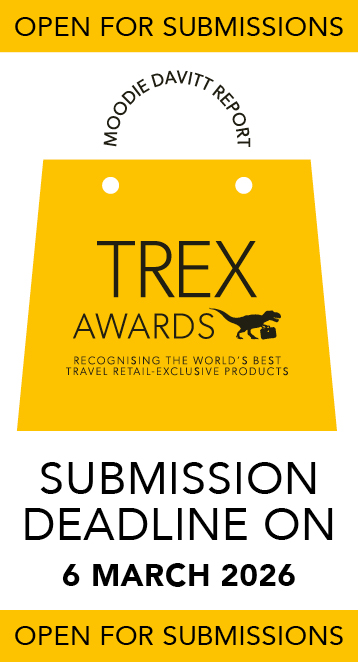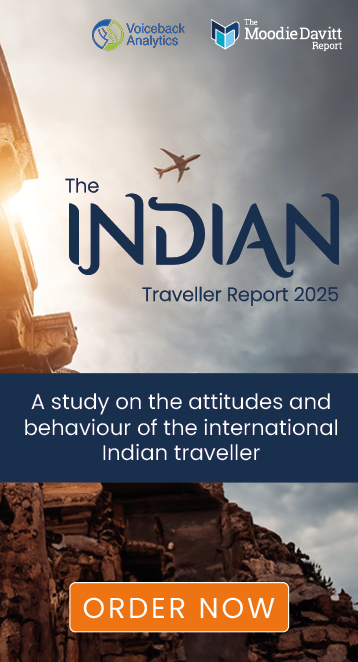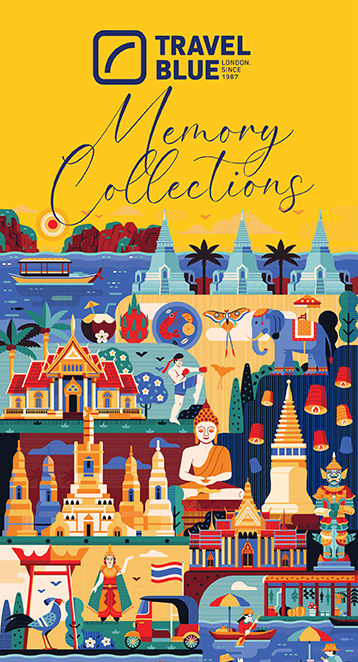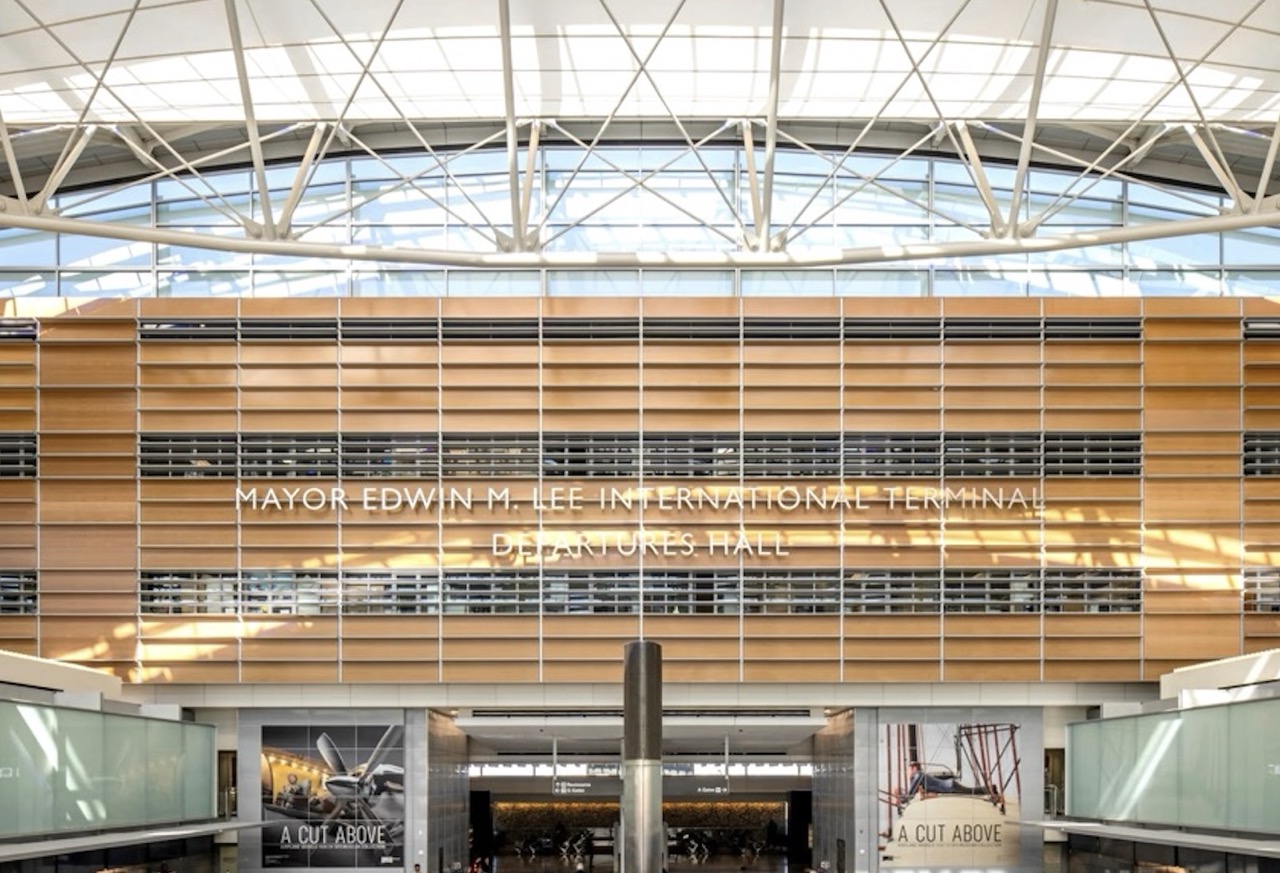
The Moodie Davitt Report brings you the latest instalment in our popular series Ten Easy Pieces*, in which we get up close and personal with leading travel retail personalities via ten snapshot questions.
Meet multi-talented Michael Barrett, former APTRA Executive Officer and recently-appointed Events and Corporate Social Responsibility Director at The Moodie Davitt Report.
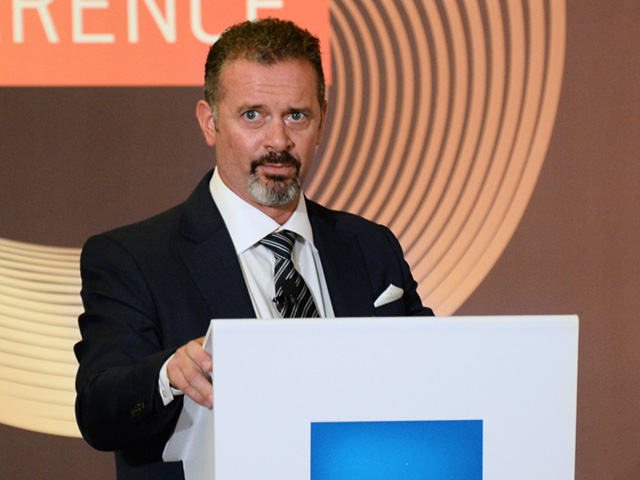 1. Where were you born and raised?
1. Where were you born and raised?
I was born and raised in Derby and spent a privileged childhood at private schools in Derbyshire. My first school was Derby High School ‘for girls’ as it was then known. They took boys in the primary school though and I recall we were about three boys to around 15 girls per class. Not a bad way to start out in life!
I later attended Repton School from 13 until A-levels. When my wife saw where I went to school, she said it was like attending Hogwarts with the gothic-style buildings and uniforms. She reckoned only the witches, wizards and brooms were missing!
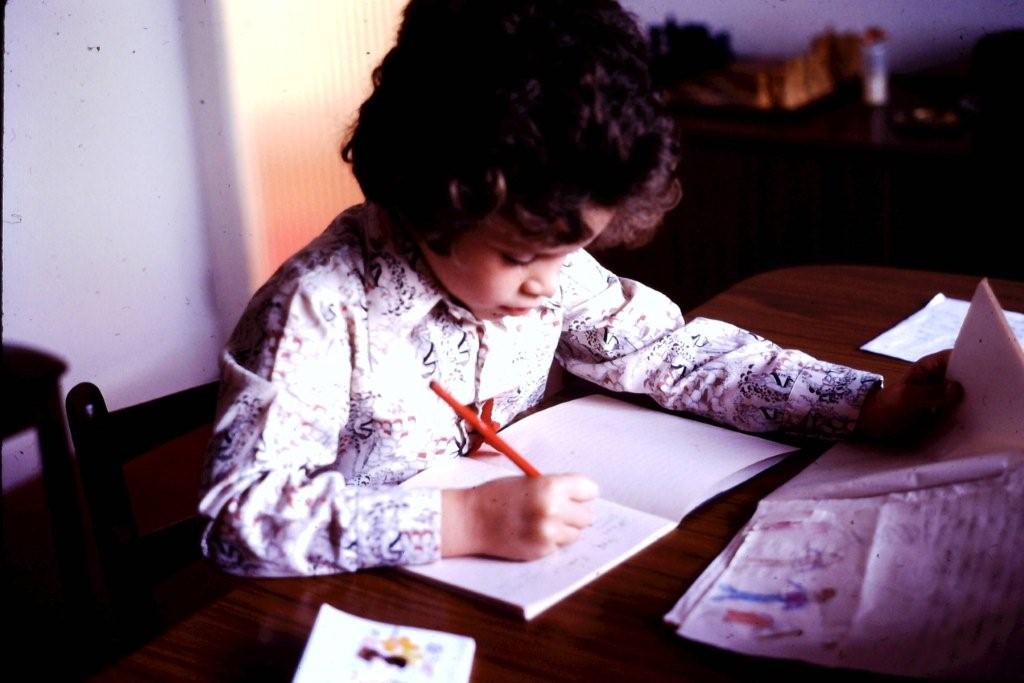
Repton had many positive experiences and memories: a fantastic music school with an amazing wealth of talent in the school orchestra and choral society, army cadet corps, the Duke of Edinburgh’s Award scheme, excellent drama and a very competitive sports programme. I was in the athletics and cross country teams. There was, however, one aspect that really helped and inspired me during my years there, and that was the Christian society.
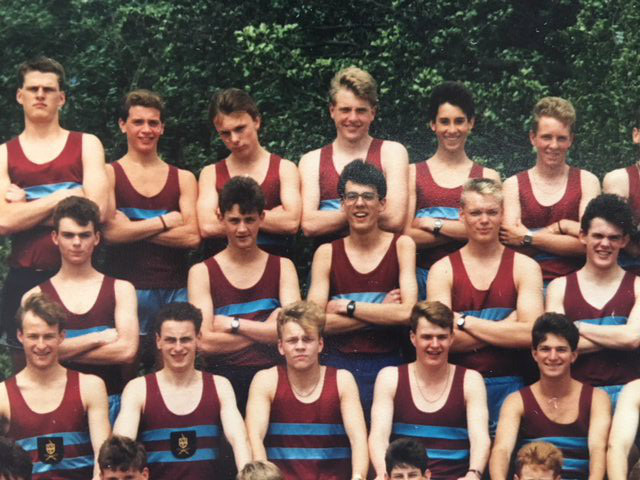
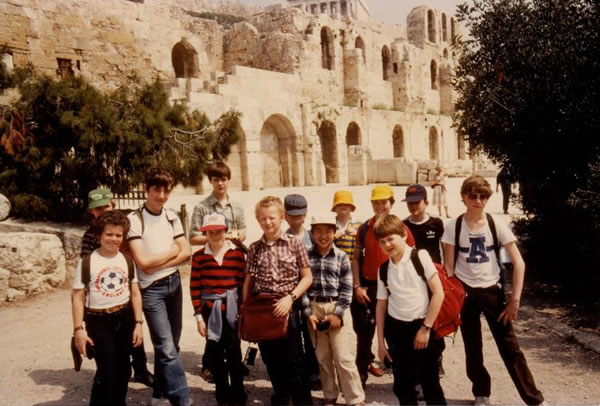
Some of my former teachers who headed up the Christian society and weekly forum had a remarkable influence on me and many other pupils there. I’ve been blessed to find other similar ‘spiritual mentors’ in the workplace also. One in particular will know who I am referring to, when he reads this.
As well as developing a strong passion for the performing arts and musical theatre at Repton, I also discovered my passion for languages there, studying ancient Greek and Latin, as well as French.
2. A ‘gap’ year and a job in Germany… what did that lead to?
As I opted for classics as opposed to German at school and was going to study Italian and French at University, I decided to spend a gap year in Germany to master another European language.
Whilst studying at the Goethe Institute, I worked shifts as a bell-boy in a beautiful, antiquated five-star hotel in Munich, the Grand Hotel Continental. Sadly it no longer exists. I also moonlighted (without pay of course!) as a singer at the hotel piano bar. It was a luxury hotel and staff members were not supposed to mix with guests but the Hotel Director caught wind of my secret singing and graciously allowed me and Momo, the resident pianist, to continue our late night serenades.
Singing has always been a passion, but only for fun. I’ve been fortunate though to meet musicians and singers over the years and sing regularly in groups. In India I was a member of the International Church music worship team, where I discovered a totally new Christian musical genre I had never heard before. Some of it felt like singing in a rock group!

Some Delhi church music team members were also in a covers band, which I was invited to join. We had a blast singing blues, swing and rock n’ roll at various gigs at the American Embassy Club and parties in beautiful colonial houses in Delhi’s diplomatic area. Again, it was all for fun; never for money, only beer and food.
I’m a ‘frustrated musician’ really. My one regret is that I didn’t practice the guitar or saxophone enough to be good enough to play live. That’s something I will keep for retirement! Just as my parents pushed me academically though, I am encouraging my kids with their music and am unashamedly proud of my eldest son, who is an excellent drummer. The other three also seem keen and my eight-year-old daughter has picked up the drums well too.
So I’m living my musical passion by proxy!
3. Back to serious studies at Bath University. As a young man did you have a blueprint for your future?
No, not at all. My focus during the first two years was definitely on the arts as opposed to the studies and I spent most nights rehearsing for theatre performances, musicals and dance shows. If my parents hadn’t been so adamant I needed to get a ‘serious degree’ then I would have probably tried to get into a theatre school. For them though, Europe was ‘the future’, which is ironic now given that, like many in their generation, they are staunch Brexiters. (So we agree to disagree whenever we meet or speak!)
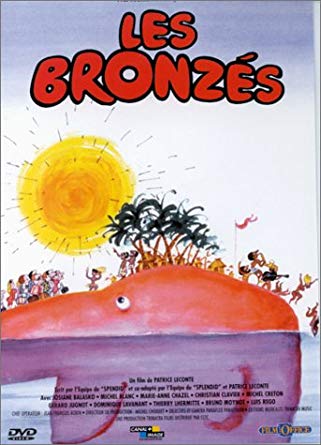
I think I shocked my father when he came to see me in Cabaret where I was very convincing as the MC in fishnet tights and bright red lipstick. I always felt very confident in some kind of a disguise or costume though and playing out of character.
I even worked as a Club Med ‘animateur’ at one stage, living for a few months virtually on the beach in the Caribbean. But that’s another story. Those familiar with the French comedy Les Bronzés will understand why only one season maximum at the Club is healthy!
I knew from the outset that I wasn’t going to stay in the UK after graduating from university and would move to Europe so my languages degree served me well for what was to follow.
4. Your first ‘real’ job was in journalism with Euro News. How did that come about?
That really happened by accident. On leaving Bath University I moved to Lyon where I’d hoped to work in marketing. But getting a job in the very rigid French system was tough. I was able to get teaching jobs, which I didn’t really feel was my vocation, and applied to do some translating work with Euro News and one thing led to another. I was trained up on the job there and converted from translator to news broadcaster.
A couple of years later when ITN acquired Euro News I applied for a job in the marketing department and was accepted. The company is multi-national and multi-cultural; it suited me perfectly and I spent five very happy years there.
My next major career change was, on hindsight, life-changing. I had planned to volunteer at an international NGO which happened to be just next to where I was living in Paris. It was something I had been thinking about for a long time, since completing my Gold Duke of Edinburgh’s Award as a sixth-former.

As part of the award activities, I took care of an amazing individual who suffered from a rare muscle-wasting disease, which meant he was quite severely physically disabled and wheelchair bound. We went on an expedition together over the French Alps, where we were tasked with researching where Hannibal, the Carthaginian General, had passed over the Rhone River and French Alps on his way to conquer Rome in 218 BC. I took care of Ian throughout the expedition; feeding him, helping him and cleaning him.
The experience marked me for life. It sparked a passion for social development. So, I was delighted when the director of the NGO, having seen my CV, offered me the job as Head of Fundraising and Communications.
The unexpected change in career also led to another unexpected turn in my life, as I met my wife Nancy at the NGO. She was in the team I had just been assigned to head up.
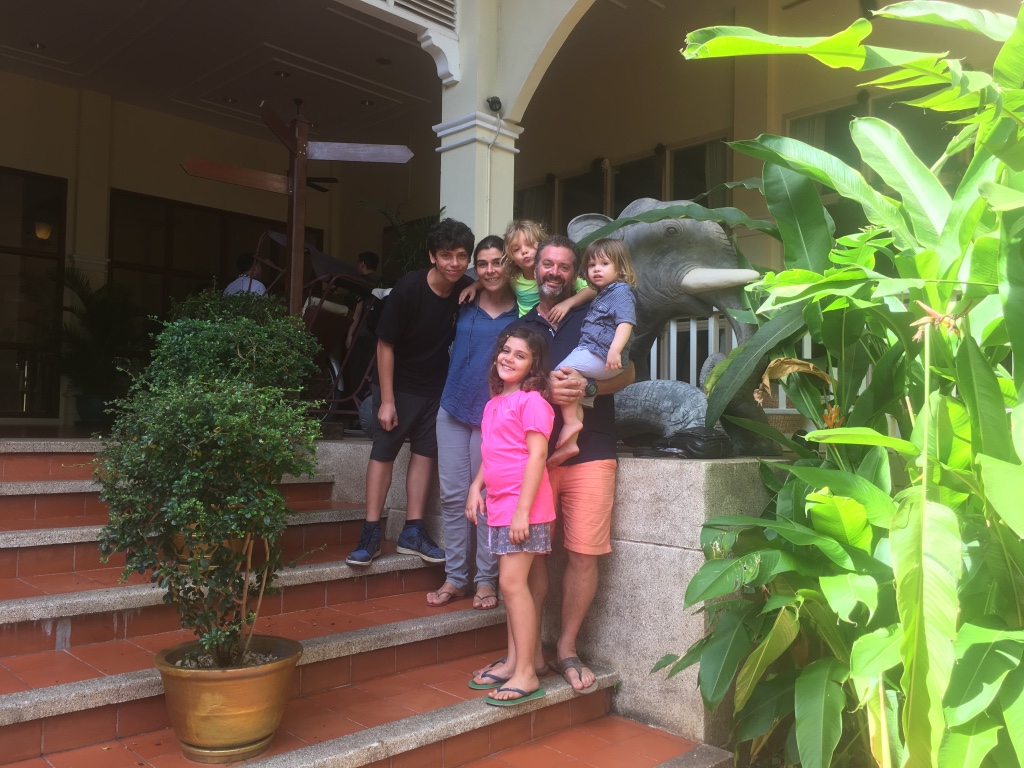
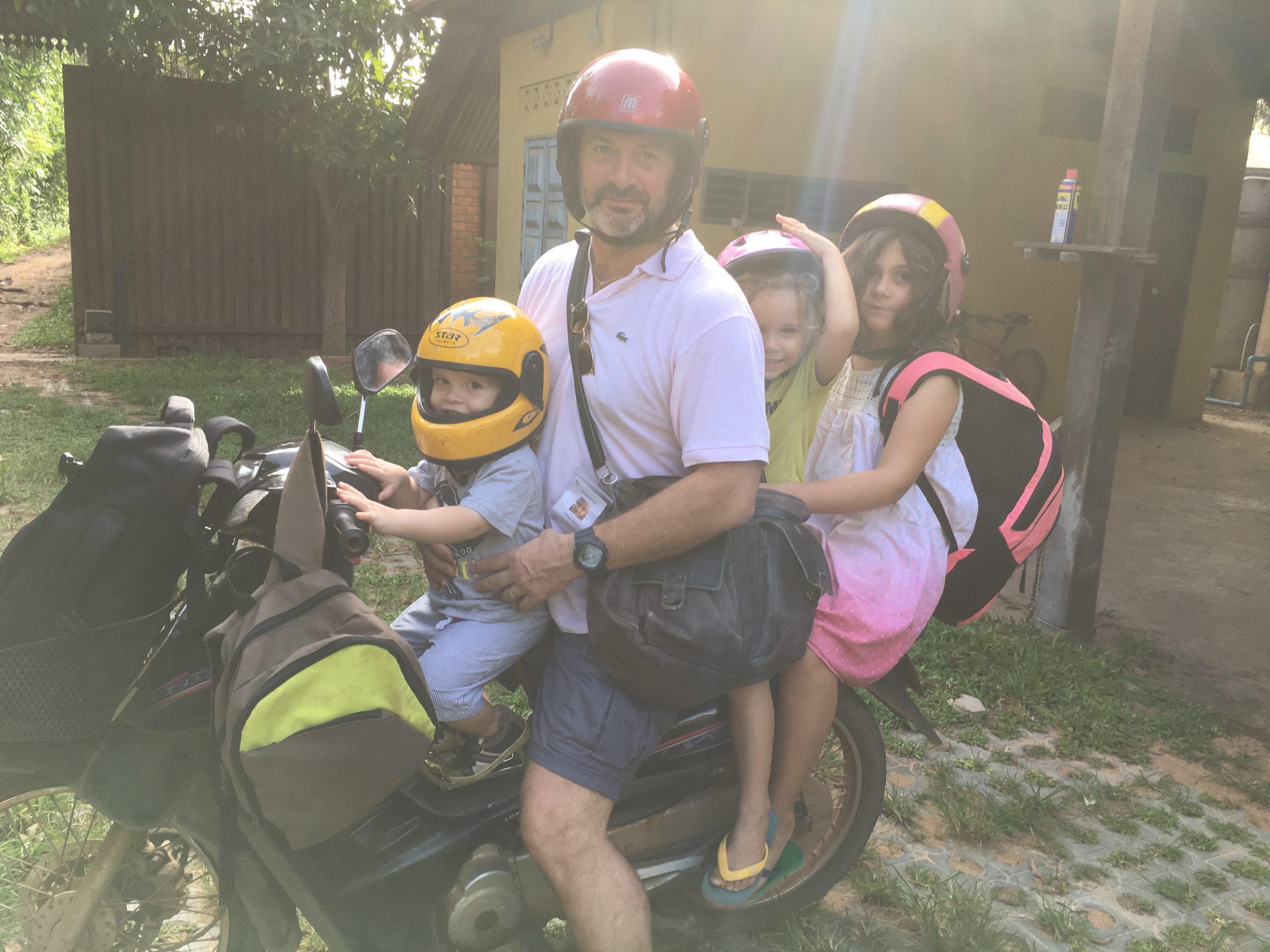 At the risk of sounding a little crazy, very soon after joining the NGO and during a meeting one evening, I was overcome with the absolute knowledge that I was going to marry her. I hardly knew her; she was totally different to every girlfriend and the typical girl I thought was ‘my type’.
At the risk of sounding a little crazy, very soon after joining the NGO and during a meeting one evening, I was overcome with the absolute knowledge that I was going to marry her. I hardly knew her; she was totally different to every girlfriend and the typical girl I thought was ‘my type’.
That was one of the many times during my life that I have felt God was speaking to me and guiding me. Believers will be with me when I say I heard ‘God’s voice’; non-believers will put it down to intuition or destiny. Either way it shows that we are not always master of our own destiny.
I never realised how my life was going to change. The ‘voice’ led to a relationship then marriage and our first child within a few months. We both shared a passion for India but it was Nancy who was the driving force behind our decision to move to India, then Cambodia and now again to Australia in the near future.
“I showed my wife the TFWA promo video. She was shell-shocked. I recall her saying how we were well-balanced as she was working for the world’s poorest and I for the richest!”
5. And your first taste of travel retail?
After leaving the NGO and consulting with various other NGOs for a couple of years, I was eager to get back into a team environment. I looked for jobs in France on UK career websites and came across a conference position with TFWA.
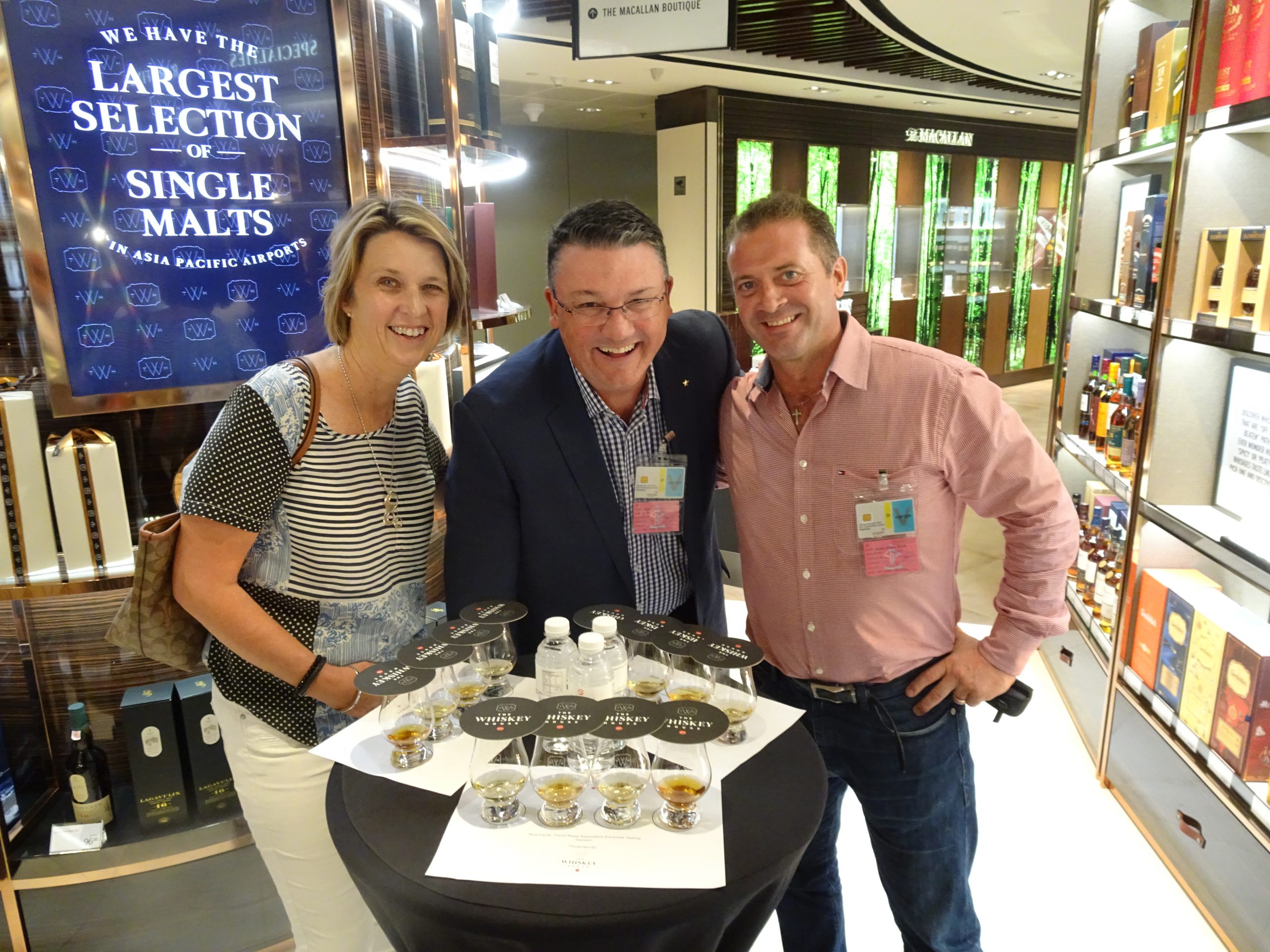
When I was hired in the summer of 2006 as Conference and Research Director I showed my wife the TFWA promo video. She was shell-shocked. I recall her saying how we were well-balanced as she was working for the world’s poorest and I for the richest!
My first impressions were two-fold. I was struck by the focus on luxury, not just the brands but the Cannes exhibition and TFWA’s approach to its events. I wasn’t complaining though and quite happy to enter this new world. The second was the amazing kindness of so many people to a newcomer to the industry, regardless of their position in the company. I still see that today and I think it’s what makes it such a special industry.
I recall long (very long in some cases) conversations with people who took me under their wing and ‘broke me in’ to the industry, such as TFWA Advertising and Sponsorship Manager Jane Grant and Thom Rankin, who was the Vice President for Conferences at TFWA at the time. Thom was, and still is, extremely supportive. There were other remarkable personalities such as Dubai Duty Free Executive Vice Chairman and CEO Colm McLoughlin, who showed such grace when I clumsily managed to spill red wine all over his white trousers and Breeda’s handbag at the Pan Pac bar in Singapore. It couldn’t have happened to nicer people!

I recall a number of other people on the TFWA board and Management Committee and MEADFA board who were extremely warm, welcoming and supportive from the outset. King Power Group (HK) Duty Free Managing Director Sunil Tuli is another industry personality I have great admiration for, especially since getting to know him better after he (as the then-President) hired me at APTRA.
I feel this warm and generous spirit is something which is characteristic of the entire industry. And it is why there are so many examples within travel retail of both individuals and companies’ commitment to philanthropy. It really is a caring industry. Whether Christians or not, there are so many individuals who live with the same altruistic principles of caring and supporting the underprivileged.
6. You have held pivotal roles in both TFWA and APTRA. How important are the associations in a changing industry?
I think the industry associations across the globe do a great job, whether their focus is more on events or advocacy.
The work involved in safeguarding the industry interests through advocacy can be a thankless task with months of discussions and endless communications with governmental departments and coordinating messages and position papers with stakeholders. It’s vital that the associations’ staff members have strong support from their respective boards and members as it’s all about team work.
There are many examples of individuals and companies who are known for their commitment to supporting the associations and thankfully they are there doing the work on a voluntary basis to support the association staff. Unfortunately, there are still many who do not recognise the work being done on their behalf and do not get involved or even support financially. That’s a real pity I find, as all are benefitting.

The problem is that much of the work on advocacy to date has been focused on two or three core categories. What many do not realise though is that when one category is affected, all are affected either directly or indirectly. What is not fully understood (or too easily forgotten) by these side-line observers is that we don’t know what issue is around the corner and how it might affect other categories. It’s probable that they will come running at that point and rally around the associations to seek support, but it would be nice(r) if they already showed support in the good times.
“I would strongly encourage all companies, especially new entrants to the industry, to not only join their regional association but also get involved as much as possible.”
Most associations in the industry are fulfilling the key services expected of all trade bodies: advocacy, research, training and networking events. There is certainly room for improvement but it’s good to see and important to underline that there are many generous supporters of the associations which allow them to carry out their missions.
I would strongly encourage all companies, especially new entrants to the industry, to not only join their regional association but also get involved as much as possible. By partaking in the discussions they can help shape the policies and directions the associations need to take going forward.
7. What drew you to The Moodie Davitt Report and what are your aspirations as Events and CSR Director?
By chance I happened to read that The Moodie Davitt Report was looking to recruit someone to manage their events. The opportunity to become more involved with events once again, not only within the industry, but with a highly-respected company and well-established events caught my interest. Without a second thought, I emailed Martin Moodie.
As I explained to Martin and his partner Dermot Davitt, I enjoy the holistic management approach to events, from the content to the creative, the logistics, marketing and the interaction with all involved at all stages; not to mention the adrenalin rush that comes with event management. When Martin offered to add the CSR aspect to the role it was a huge bonus.
As far as my aspirations are concerned, I’ll be looking to build on what has already been done very well so far. The events have a solid base and reputation, so the aim will not be to change but to see how we can innovate to introduce new ideas and new concepts. I think there is a lot to gain by thinking out of the box and looking at new developments in the retail and retail technology world to see how we can inspire further innovation within the travel retail industry.
On the CSR side, it’s not just about what we as a company are doing on CSR. I would like to work closely with industry stakeholders, understand more about the work being done on CSR and the various initiatives that are being supported.
There is so much going on in this field we don’t know about that deserves attention and praise. While most companies and individuals don’t do this for the glory, highlighting their initiatives can set examples for others to follow.
It’s also a means to help support the industry in the long term. When decision makers within governments and other institutions have a better understanding of what the duty free and travel retail industry is doing in terms of sustainability, protecting the environment and empowering the underprivileged, it can help open doors and demonstrate the importance of the industry on a social as well as economic level.
8. Tell us about Soulcial Trust. How did that start and what are your plans for the future?
When living in places like India and Cambodia, you are constantly confronted with misery, misfortune, ill treatment and sickness. It’s hard to just stand by and do nothing. It’s also impossible to give to every homeless or disabled child who begs at the street corners and traffic lights. You are overcome with a desire to help and I was fortunate, through the International Church in Delhi, to meet individuals, people with physical disabilities, who needed help.
We got chatting and I started doing awareness building and fundraising work for people suffering from spinal cord injuries. I realised I needed to set up an NGO in order to have an official entity and raise funds, so Soulcial Trust was born, first in India and then in Cambodia when we moved there late 2016.
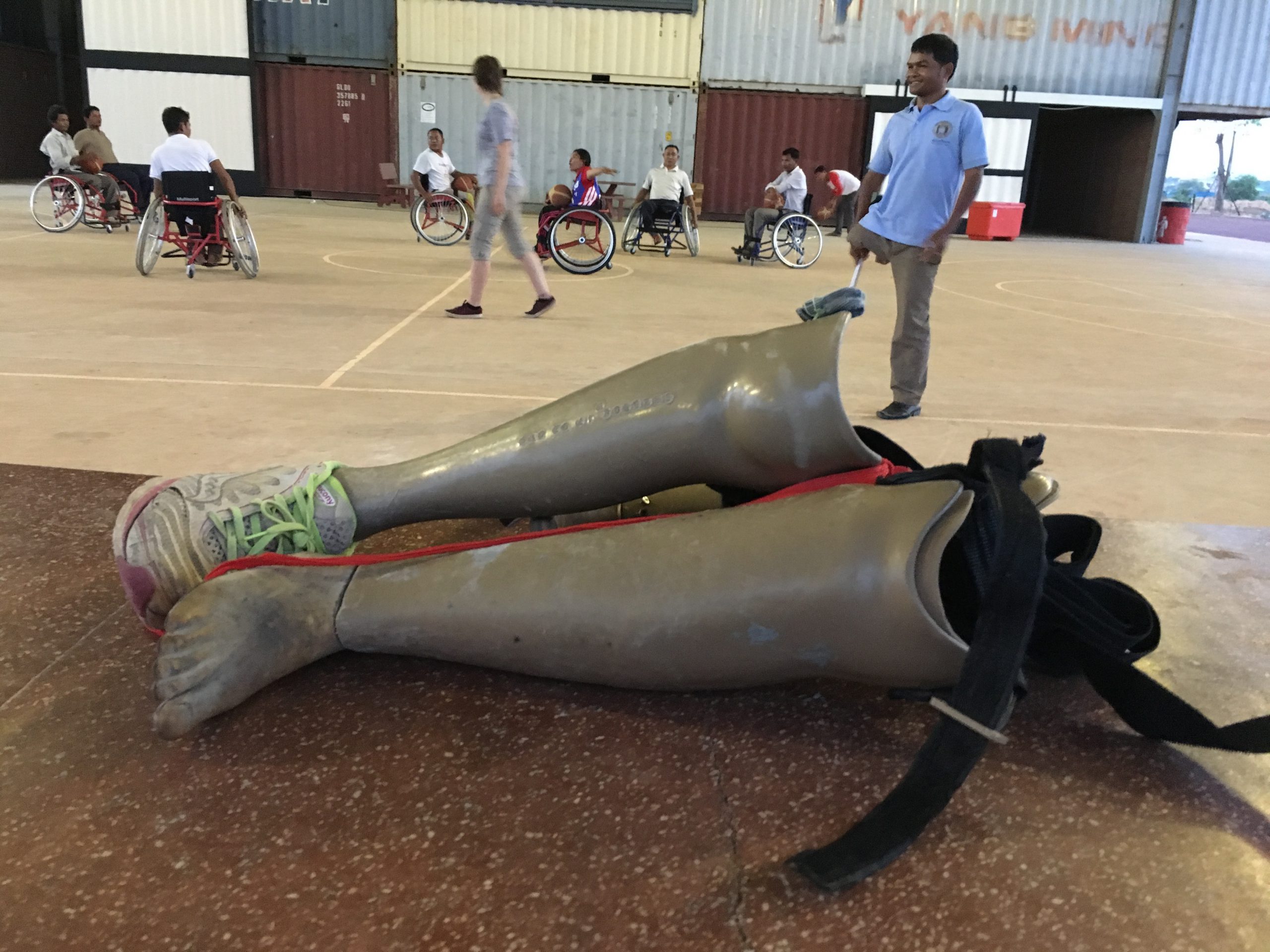
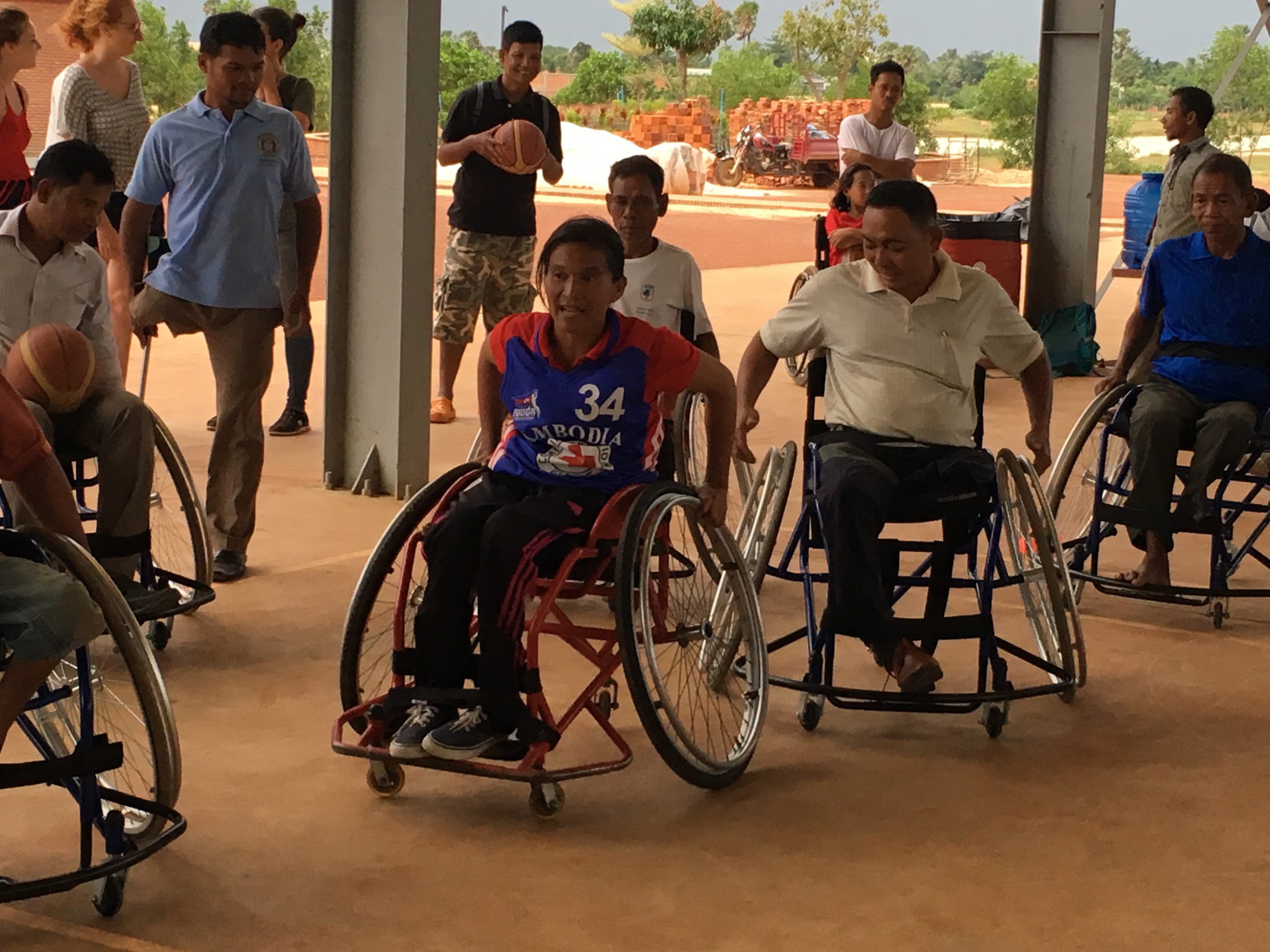
We focus on empowering people with disability through sports activities – wheelchair rugby in India and wheelchair basketball and blind football in Cambodia. We are extremely fortunate to have received amazing support from the travel retail industry with very generous donations from Bommidala, m1nd-set, TFWA Care and the Edrington Group.
A UK charity founded by former England rugby international Jason Leonard, the Atlas Foundation, is also supporting us to develop able-bodied rugby for underprivileged children in Cambodia. We have a lot of girls who have joined the activity which is great as sadly girls are still very much exploited in Cambodia, so it’s great to be able to bring them the values of a sport like rugby and, at the same time, better hope for their future.
What I really love about the NGO activities the Trust coordinates is both the direct impact on the lives of the beneficiaries and the amazing dedication of the numerous volunteers who give up months of their lives to carry out the work and manage the projects. They are really helping to transform the lives of people who had never played a team sport before and never dreamed of travelling either domestically or internationally to play in tournaments.
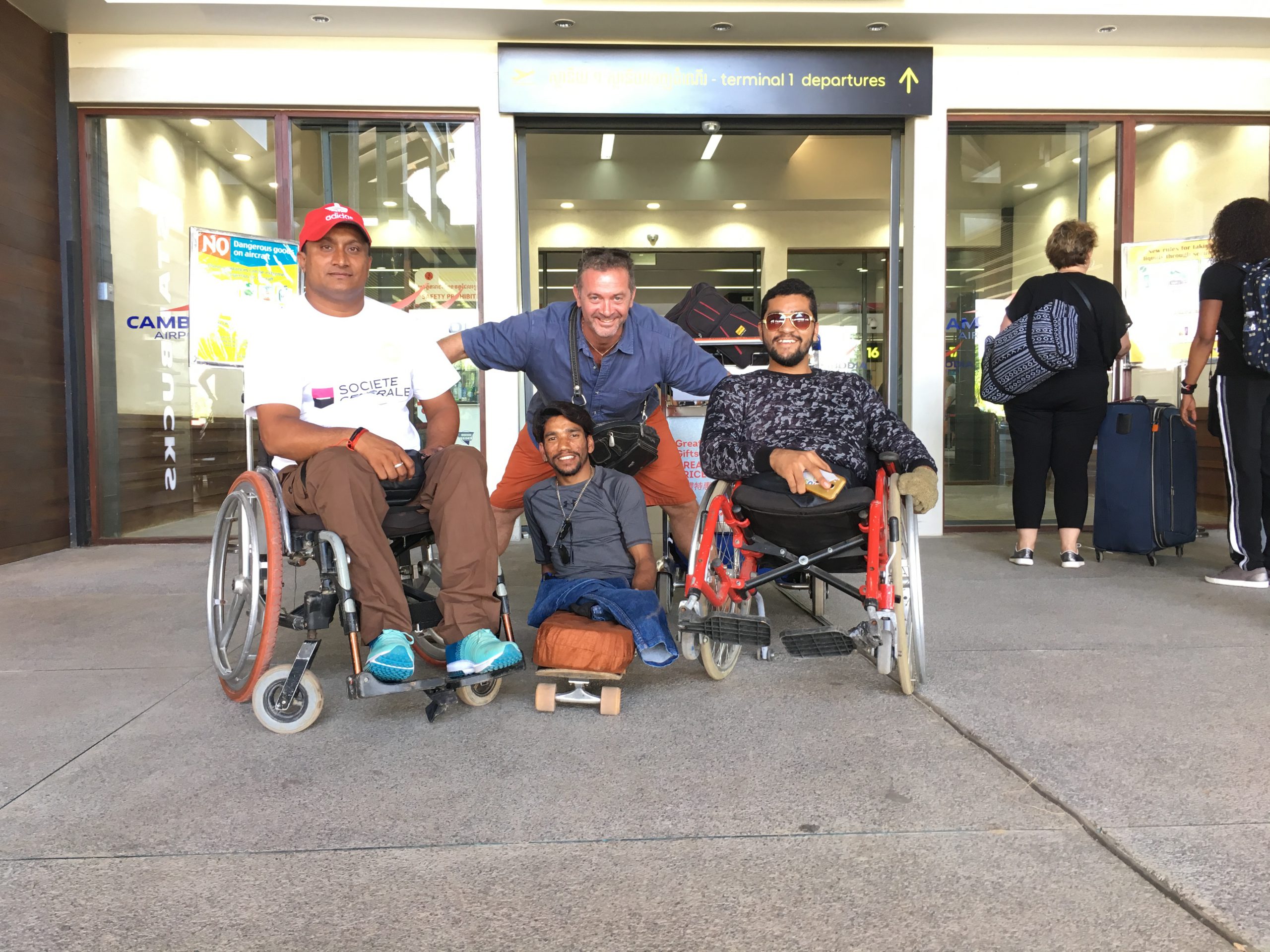
There is still a great deal of discrimination against people with disability in countries such as India and Cambodia so it’s great to see we are putting smiles on faces and providing new opportunities for individuals who lacked any such prospects.
9. ‘Desert Island Dinner’ and you can choose four partners. Who would you choose and why?
Well, thanks to my work at TFWA I’ve already been fortunate to have lunch with some pretty iconic personalities such as Neil Armstrong, Koffi Annan and Bob Geldof. That was a great privilege.
The first for me would have to be Elvis Presley. I have been a life-long fan (and imitator in my younger days). I’ve read extremely interesting biographies on him, including one from his stepbrother, who focuses very much on Elvis as a Christian. Whether you like his music or not I think anyone would find him to be an extremely magnetic character. I was lucky to be able to visit his home Graceland on my own for the best part of an hour with no one else around me. It was a great moment for me, so to meet him in person would be the only thing that could top that. I’ll have to wait for that dinner though.
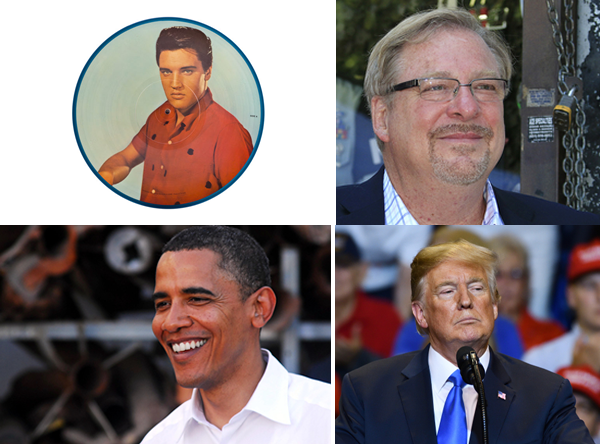
The second dinner partner would be American Pastor Rick Warren. I’ve found the people who have inspired me the most in life have been my Christian teachers, pastors and some Christian colleagues. I’ve found enormous comfort in spending hours over breakfasts and lunches with some of these people. I read a lot of Christian books and writings, including Daily Devotionals by Pastor Rick. I’m sure with his faith and life experience he would have a profound impact on me. He has advised presidents and world leaders; he has built one of America’s biggest mega churches, written one of America’s top-selling books and he gives away 91% of his earnings! He would be truly inspiring.
The third and fourth dinner partners would have to be together, not least because I could not bear to sit alone with number four. They would be Barack Obama and Donald Trump. I would love to hear them both challenge each other on their respective presidencies. I would demand some of Hogwart’s truth serum though for ‘the Donald’ and ensure the conversation was recorded. More seriously though, having read a couple of biographies on Barack Obama around the time he was first elected in 2008, I already greatly admired him and his story. It would be a unique experience in many ways.
“Integrity is the glue that holds our way of life together… When wealth is lost, nothing is lost; when health is lost, something is lost; when character is lost, all is lost.” – Billy Graham.
10. Is there a Michael Barrett approach to life?
I think integrity in all I do is the approach I try to adopt. The late Billy Graham said: “Integrity is the glue that holds our way of life together… When wealth is lost, nothing is lost; when health is lost, something is lost; when character is lost, all is lost.” That goes for the workplace, with friends and of course with family.
I want to set an example to my children, and even if I don’t always get it right, my daily prayer is that I succeed in providing them with a loving home, with strong service-oriented values where they treat everyone as equals and make it their life goals to ease the burden of others. I believe the more we give back while we are alive, the richer we become internally.
My Christian belief and Christian mentors have helped shape my life; I have often been guided through prayer in some of life’s major decisions. I know that I have been extremely fortunate throughout my life, so I don’t put that down to luck – I think my prayers have been answered.
While we all get tempted to focus too much on work I try to keep the family a priority. I don’t always succeed unfortunately. I can spend hours watching the kids play and I admire each one of them enormously for different characteristics. When I see how my eldest son is now 14 years’ old, and he seems to have developed from child to young man in just the past few months, I realise how fast time passes by and I want to make sure the children are able to look back on a happy childhood.


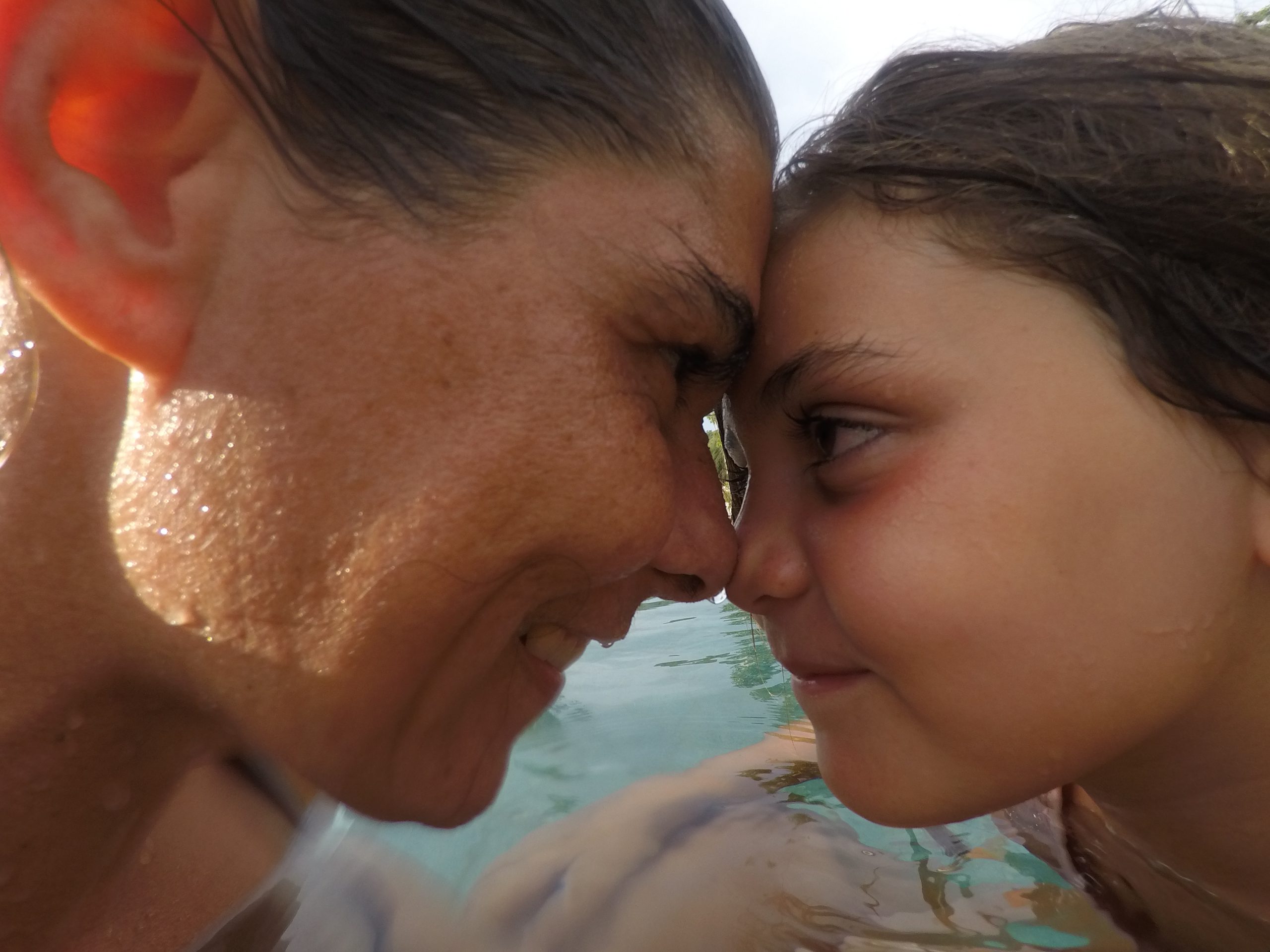
*PREVIOUSLY FEATURED TEN EASY PIECES PERSONALITIES INCLUDE:
Meet (departing) Imperial Tobacco Head of Corporate Affairs and Compliance Dr Jennifer Cords
Meet Essence Corp Vice President Patricia Bona
Meet Buckley London Head of Sales Amy Donlon
Meet Jonathan Holland & Associates Managing Director Jonathan Holland
Meet Coccinelle Head of Travel Retail Emanuele Mazziotta
Meet Royal Dragon Vodka Founder and President Michel Morren
Meet Lacoste Travel Retail Director Asia Pacific Erin Lillis






